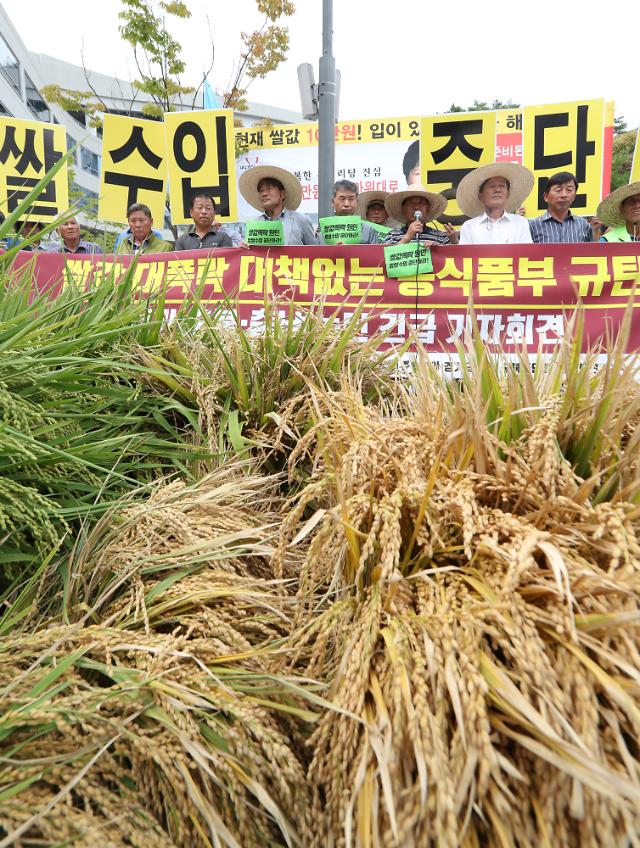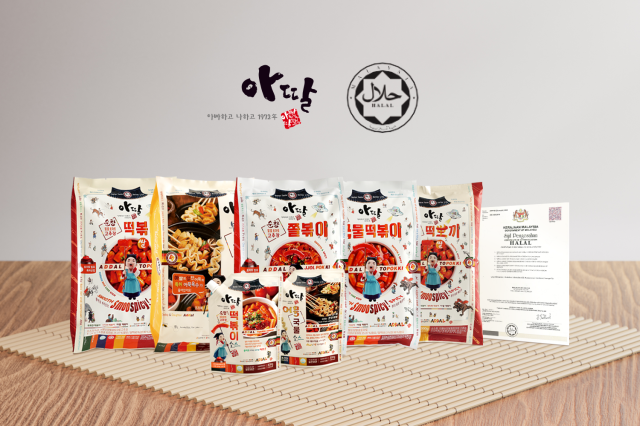
Farmers urge the government to stop rice imports.[Yonhap News Photo]
The South Korean government decided Wednesday to purchase a higher amount of rice than last year's as concerns grew among farmers over falling rice prices.
The decision was made at a meeting of top government and ruling party officials.
South Korea's rice harvest hit a record high of 4.32 million tons last year. This year is also expected to see a bumper crop, though the amount of land used to grow rice fell 2.5 percent one-year to 779,000 hectares, according to the state-run Korea Rural Economic Institute.
The government has promised to buy 390,000 tons of rice from farmers to stabilize the market, but rice growers want more as prices continued to drop due to dwindling consumption, oversupply, rising stockpiles and bumper crops.
On September 5, the price of rice was set at 137,152 won (122.4 US dollars) per 80 kilograms packed in a straw bag, down 14.3 percent from a year earlier. The price has been falling since.
Rice reserves were estimated at nearly two million tons, far higher than 800,000 tons recommended by the Food and Agriculture Organization. South Korea should also import about 400,000 tons under the obligatory rice quota set by the World Trade Organization.
Annual rice consumption fell from 128.1 kg in 1985 to 62.9 kg in 2015, leading to a surge in the rice inventory.
Rice is still the main source of daily calories, but the consumption of barley, beans and other non-rice grains has increased, reflecting a dietary change especially among young people.
In 2015, the annual consumption of non-rice grains rose 1.1 percent on-year to 8.8 kg per person, according to data compiled by Statistics Korea. This year's rice consumption is forecast to stand at less than four million tons.
South Koreans now consume more coffee than their staple food. Alternative and processed food are getting more popular while the perception that too much carbohydrate is unhealthy also played a role in the dietary trend.
Aju New Lim Chang-won = cwlim34@ajunews.com




